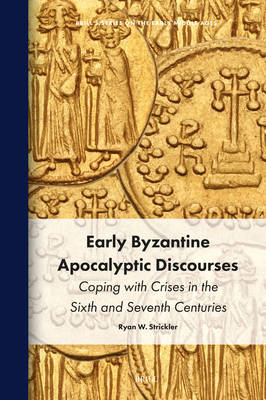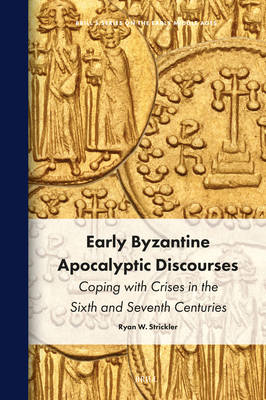
- Afhalen na 1 uur in een winkel met voorraad
- Gratis thuislevering in België vanaf € 30
- Ruim aanbod met 7 miljoen producten
- Afhalen na 1 uur in een winkel met voorraad
- Gratis thuislevering in België vanaf € 30
- Ruim aanbod met 7 miljoen producten
Zoeken
Early Byzantine Apocalyptic Discourses
Coping with Crises in the Sixth and Seventh Centuries
Ryan W Strickler
€ 181,95
+ 363 punten
Omschrijving
The Byzantine Empire faced many threats, but few were as great as the events of the sixth and seventh centuries, when paranoia, plagues, and wars threatened to tear the empire apart. Like today, prophets predicted horrors to come while preachers called on their congregations to repent. This book considers how the Byzantines understood the crises of the period and their role in divine history by reframing their troubles through an apocalyptic lens. While most scholars have interpreted these messages as a prediction of the end, this book argues for a different reading, understanding them instead as messages of hope.
Specificaties
Betrokkenen
- Auteur(s):
- Uitgeverij:
Inhoud
- Aantal bladzijden:
- 260
- Taal:
- Engels
- Reeks:
- Reeksnummer:
- nr. 32
Eigenschappen
- Productcode (EAN):
- 9789004745858
- Verschijningsdatum:
- 27/11/2025
- Uitvoering:
- Hardcover
- Formaat:
- Genaaid
- Afmetingen:
- 155 mm x 235 mm

Alleen bij Standaard Boekhandel
+ 363 punten op je klantenkaart van Standaard Boekhandel
Beoordelingen
We publiceren alleen reviews die voldoen aan de voorwaarden voor reviews. Bekijk onze voorwaarden voor reviews.











